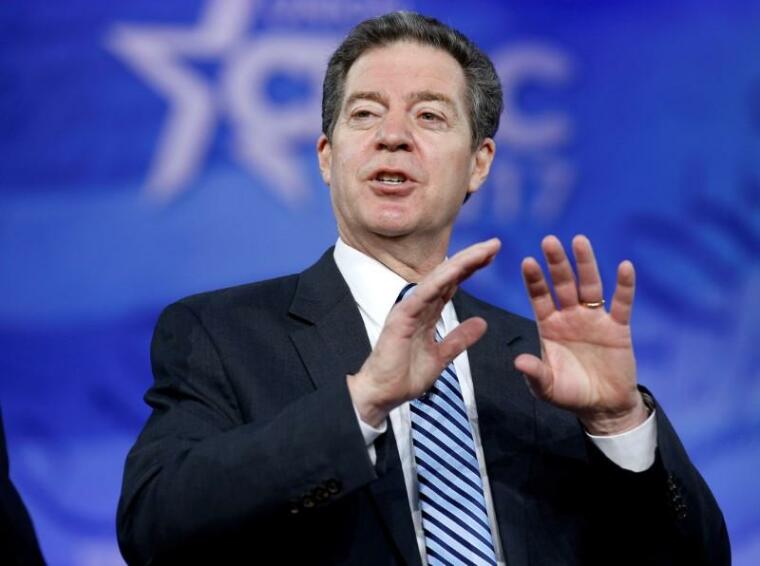Jewish, Muslim and Christian faith leaders sign declaration calling for religious tolerance

Hundreds of Jewish, Muslim and Christian faith leaders had gathered in Washington on Wednesday to sign a declaration calling for unity and religious tolerance.
The release of the "Washington Declaration" came after two days of collaboration between hundreds of interfaith leaders who attended the three-day "Alliance of Virtue" conference organized by the Forum for Promoting Peace in Muslim Societies and its leader, Shaykh Abdallah Bin Bayyah, a Saudi Arabian Islamic Studies professor, The Christian Post reported.
"[W]e cannot love and serve God if we fail also to love our neighbors — including the strangers in our midst," the declaration stated.
"Recognizing that our shared values are more important than our differences, and that we are strongest when we act together, we pledge to combine our best efforts to foster unity where there is discord, aid the impoverished, tend the vulnerable, heal the poor in spirit, and support measures that will ensure respect for the dignity of every human being," it continued.
Apart from calling for unity and religious tolerance, the document also calls for the establishment of an "Alliance of Virtue" to implement the declaration, and it also calls for the provision of more than 1 billion meals to feed impoverished and underserved communities across the globe.
In addition, the declaration suggested that a multi-religious body consisting of religious figures be established to "support mediation and reconciliation."
Finally, the document requested the formation of an interfaith committee to adopt the recommendations in the declaration that "reflects the fullness of diversity in our communities and across the world."
The Christian Post noted that the Washington Declaration builds upon the Marrakesh Declaration of January 2016, which was signed by over 350 faith-leaders and called attention to the plight of religious minorities in Muslim-majority nations.
The conference was attended by the newly appointed U.S. Ambassador-at-Large for International Religious Freedom Sam Brownback, who gave his first public address at the event.
"This is the big one. The administration has made clear this is a foreign policy and national security objective," he said.
Brownback, however, was criticized by conservative media outlet PJ Media in an article on Tuesday for associating with Bin Bayyah, whom the authors called a "hardline Islamic cleric" who endorsed "killing of Americans in Iraq."
Deborah Fikes, the former permanent representative to the United Nations for World Evangelical Alliance, has warned the audience about the backlash from conservative evangelicals in response to collaborative efforts with Muslim leaders.
Bob Roberts, an evangelical pastor at Northwood Church in Keller, Texas, said that those within the "older, higher levels" of evangelicalism are unlikely to approve of the message of the conference because of their "old worldview." But he noted that younger evangelicals see the conference as a model for future efforts to protect religious liberty because they have "realized the world has shifted."
Other religious leaders who attended the conference include Bishop Efraim Tendero, secretary-general of the World Evangelical Alliance; Timo Soini, minister for foreign affairs of Finland; and Rabbi David Saperstein, director emeritus of the Religious Action Center of Reform Judaism.
 Christians don't have to affirm transgenderism, but they can’t express that view at work: tribunal
Christians don't have to affirm transgenderism, but they can’t express that view at work: tribunal Archaeology discovery: Medieval Christian prayer beads found on Holy Island
Archaeology discovery: Medieval Christian prayer beads found on Holy Island Presbyterian Church in America votes to leave National Association of Evangelicals
Presbyterian Church in America votes to leave National Association of Evangelicals Over 50 killed in 'vile and satanic' attack at Nigerian church on Pentecost Sunday
Over 50 killed in 'vile and satanic' attack at Nigerian church on Pentecost Sunday Ukrainian Orthodox Church severs ties with Moscow over Patriarch Kirill's support for Putin's war
Ukrainian Orthodox Church severs ties with Moscow over Patriarch Kirill's support for Putin's war Islamic State kills 20 Nigerian Christians as revenge for US airstrike
Islamic State kills 20 Nigerian Christians as revenge for US airstrike Man who served 33 years in prison for murder leads inmates to Christ
Man who served 33 years in prison for murder leads inmates to Christ


 Nigerian student beaten to death, body burned over ‘blasphemous’ WhatsApp message
Nigerian student beaten to death, body burned over ‘blasphemous’ WhatsApp message 'A new low': World reacts after Hong Kong arrests 90-year-old Cardinal Joseph Zen
'A new low': World reacts after Hong Kong arrests 90-year-old Cardinal Joseph Zen Iran sentences Christian man to 10 years in prison for hosting house church worship gathering
Iran sentences Christian man to 10 years in prison for hosting house church worship gathering French Guyana: Pastor shot dead, church set on fire after meeting delegation of Evangelicals
French Guyana: Pastor shot dead, church set on fire after meeting delegation of Evangelicals ‘Talking Jesus’ report finds only 6% of UK adults identify as practicing Christians
‘Talking Jesus’ report finds only 6% of UK adults identify as practicing Christians Mission Eurasia ministry center blown up in Ukraine, hundreds of Bibles destroyed: 'God will provide'
Mission Eurasia ministry center blown up in Ukraine, hundreds of Bibles destroyed: 'God will provide' Church holds service for first time after ISIS desecrated it 8 years ago
Church holds service for first time after ISIS desecrated it 8 years ago Burger King apologizes for 'offensive campaign' using Jesus' words at the Last Supper
Burger King apologizes for 'offensive campaign' using Jesus' words at the Last Supper Uganda: Muslims abduct teacher, burn him inside mosque for praying in Christ’s name
Uganda: Muslims abduct teacher, burn him inside mosque for praying in Christ’s name